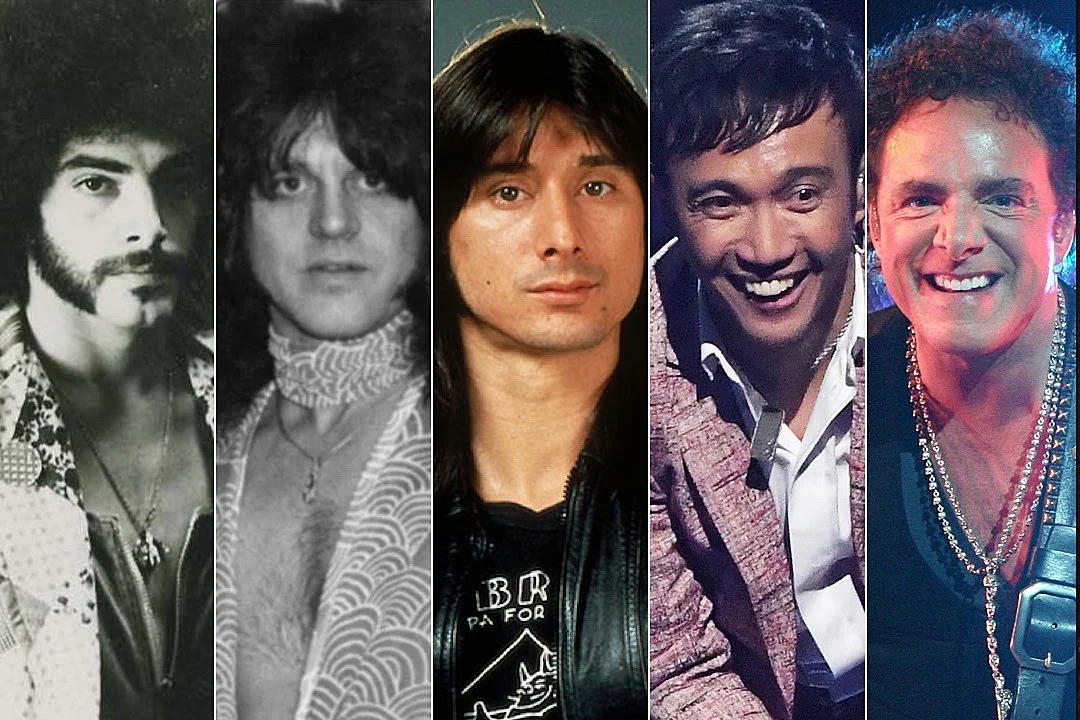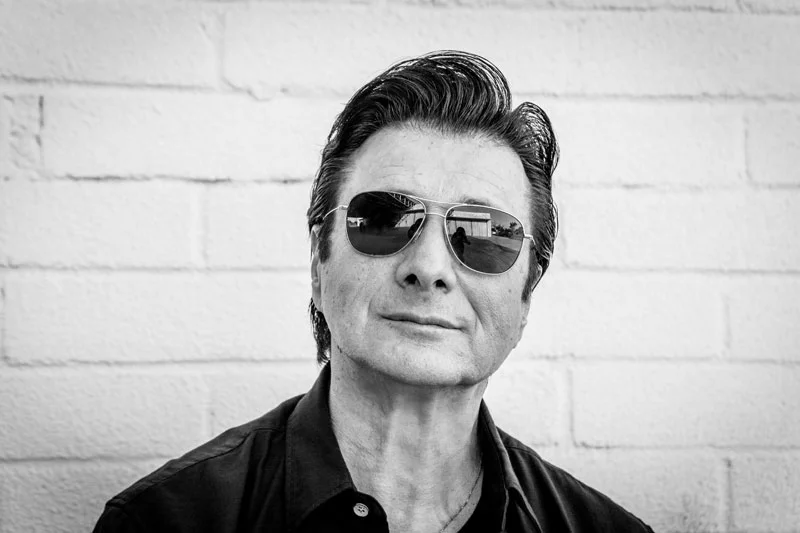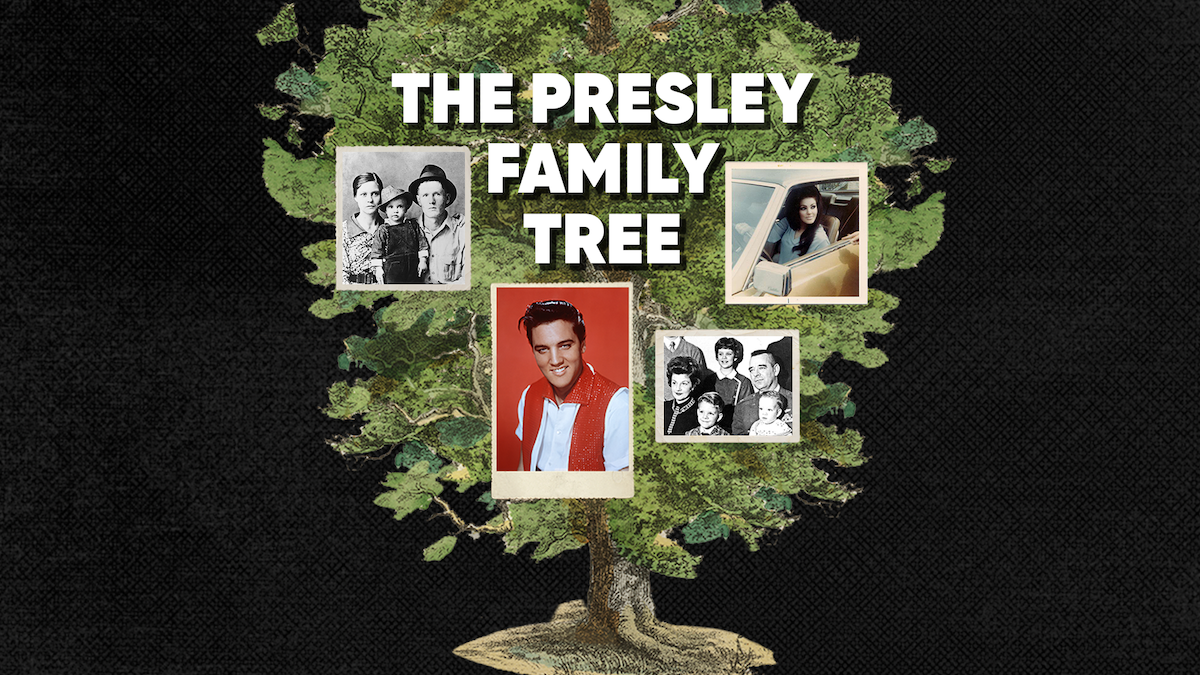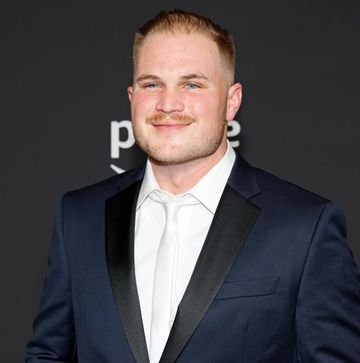
Rock Music World


Journey Lead Singers In Order: History and Band Members
In this article, we delve into the captivating history of Journey, an iconic rock band that has left an indelible mark on the music industry. From their humble beginnings to their meteoric rise to fame, Journey has mesmerized audiences worldwide with their unique sound and timeless hits. Join us on a journey through time as we explore the remarkable story of this legendary band.
Formation of the Band
Journey was formed in 1973 in San Francisco, California, bringing together a group of highly talented musicians. The founding members included Neal Schon, Gregg Rolie, Ross Valory, Aynsley Dunbar, and George Tickner. With their combined musical prowess and creative vision, they set out to create something extraordinary.
Early Years and Musical Style
During their early years, Journey experimented with a fusion of rock, jazz, and progressive influences, creating a distinctive sound that set them apart from their contemporaries. Their self-titled debut album, released in 1975, showcased their musical versatility and marked the beginning of their incredible journey.
Evolution and Breakthrough Success
In 1977, Journey underwent a significant change that would forever shape its destiny. Steve Perry joined the band as their lead vocalist, injecting new energy and unparalleled vocal range into their music. This lineup change proved to be a turning point for Journey, leading to a series of chart-topping albums and unforgettable songs.
Chart-topping albums and Hit Singles
Journey’s breakthrough came in 1978 with the release of their album “Infinity,” which became a massive success. The album spawned the hit singles “Wheel in the Sky” and “Lights,” propelling Journey into the mainstream spotlight. They continued their winning streak with subsequent albums, including “Evolution” (1979) and “Departure” (1980), which produced hits like “Lovin’, Touchin’, Squeezin'” and “Any Way You Want It.”
The Iconic Album: “Escape”
In 1981, Journey released their most iconic album to date, “Escape.” This album elevated their status as rock superstars and solidified their place in music history. Featuring the mega-hits “Don’t Stop Believin’,” “Open Arms,” and “Who’s Crying Now,” “Escape” became an instant classic, captivating audiences with its emotionally charged lyrics and powerful melodies.
The Power Ballad Era
Journey’s success continued into the mid-1980s, defined by the rise of power ballads that struck a chord with fans worldwide. Songs like “Faithfully,” “Separate Ways (Worlds Apart),” and “Send Her My Love” showcased the band’s ability to create heartfelt and anthemic ballads that resonated deeply with listeners.
A Change in Direction
As the 1990s approached, Journey faced challenges and underwent significant lineup changes. Steve Perry departed from the band in 1987, leading to a period of transition as they searched for a new lead vocalist. Despite these challenges, Journey remained resilient and continued to produce music that captivated its loyal fan base.
Journey’s Enduring Legacy
Although the band’s popularity waned in the late 1990s, their music never faded from the hearts of their dedicated fans. Journey’s timeless classics continue to resonate with audiences of all ages, thanks to their emotional depth, infectious melodies, and inspiring lyrics. Their songs have become anthems for perseverance, love, and the power of music itself.
Past Journey band members include the following:
- Steve Perry (1977-1998)
- Aynsley Dunbar (1974-1978)
- Robert Fleischman (1977)
- Steve Smith (1978-1985, 1995-1998)
- Randy Jackson (1985-1987)
- Steve Augeri (1998-2006)
Current Journey band members:
- Neal Schon – Guitar (1973-present)
- Jonathan Cain – Keyboards (1980-present)
- Ross Valory – Bass (1973-1985, 1995-present)
- Arnel Pineda – Vocals (2007-present)
- Deen Castronovo – Drums (1998-present)
Lead Singers of Journey
Van Halen Lead Singers In Order: A Journey Through the Years
Black Sabbath Singers In Order: Ever-Changing Lineup of Black Sabbath
The Original Journey: Gregg Rolie’s Era

Gregg Rolie, a two-time Rock and Roll Hall of Fame inductee, served as the original lead singer of Journey. He began his musical career as a co-founder and lead vocalist of Santana before joining forces with Neal Schon to form Journey. Rolie’s soulful voice and exceptional skills as a keyboardist and harmonicist contributed to the band’s early success. He showcased his talent on albums like “Journey,” “Look into the Future,” and “Next.” However, Rolie transitioned to co-lead vocals when Steve Perry joined the band in 1977.
Steve Perry: The Voice of Journey’s Greatest Hits

Steve Perry, widely recognized as the quintessential Journey lead singer, propelled the band to unprecedented heights during their most commercially successful era. Born with a gift for singing, Perry’s powerful and emotive vocals struck a chord with audiences worldwide. With Perry at the helm, Journey released a string of chart-topping albums, including “Infinity,” “Escape,” and “Frontiers.” Iconic songs like “Don’t Stop Believin’,” “Open Arms,” and “Faithfully” became anthems for a generation. Perry’s remarkable songwriting abilities and magnetic stage presence contributed to the band’s enduring legacy.
Current Lead Singer: Arnel Pineda

Following Steve Perry’s departure in 1987, Journey experienced a series of lead singer changes. Steve Augeri, known for his vocal range and stage charisma, took over from 1998 to 2006. Jeff Scott Soto briefly joined the band in 2006, leaving his mark with his distinctive style. However, it was Arnel Pineda who breathed new life into Journey as the current lead singer. Pineda’s incredible vocal resemblance to Steve Perry, coupled with his dynamic stage presence, won the hearts of fans worldwide. Since 2008, Pineda has seamlessly integrated into the band, injecting fresh energy and passion into their performances.
Journey’s Enduring Discography: Albums That Defined an Era
Over the past five decades, Journey has released a diverse and extensive discography, showcasing their musical prowess and creativity. Let’s explore some of their most iconic albums:
“ Infinity ” (1978): With Steve Perry as the lead singer, “Infinity” marked a significant turning point for Journey. It featured hit singles like “Wheel in the Sky” and “Lights,” solidifying their place in the rock music landscape.
“ Escape ” (1981): This album became a monumental success, boasting chart-topping hits such as “Don’t Stop Believin'” and “Open Arms.” “Escape” catapulted Journey to international stardom and remains one of their most beloved records.
“ Frontiers ” (1983): Building upon their previous success, “Frontiers” showcased Journey’s evolution with tracks like “Separate Ways (Worlds Apart)” and “Faithfully.” The album’s polished production and memorable hooks solidified Journey’s status as one of the biggest rock bands of the 1980s.
“ Raised on Radio ” (1986): Released during the band’s final years with Steve Perry, “Raised on Radio” featured a more radio-friendly sound and produced hits like “Be Good to Yourself” and “I’ll Be Alright Without You.” Despite tensions within the band, the album showcased their ability to create catchy, melodic rock tunes.
“ Revelation ” (2008): With Arnel Pineda as the lead singer, “Revelation” marked a new chapter for Journey. The album featured new recordings of their classic hits, reaffirming Pineda’s vocal prowess and rekindling the band’s popularity among longtime fans and a new generation.
“ Eclipse ” (2011): Continuing their musical journey with Pineda, Journey released “Eclipse,” a record that showcased their ability to evolve while staying true to their roots. The album demonstrated their enduring songwriting skills and featured tracks like “City of Hope” and “Edge of the Moment.”
“Escape & Frontiers Live in Japan” (2019): As a testament to their enduring appeal, Journey released a live album featuring their performances of the “Escape” and “Frontiers” albums in their entirety. The release showcased the band’s timeless hits in a live setting, capturing the energy and excitement of their concerts.
Journey’s Impact and Legacy
Journey’s impact on the rock music landscape cannot be overstated. With their infectious melodies, anthemic choruses, and powerful vocals, they carved out a unique sound that resonated with millions of listeners. Their music transcended generations, becoming the soundtrack to countless moments and capturing the hearts of fans worldwide.
Steve Perry’s tenure as the lead singer marked the band’s most successful period, and his distinct voice became synonymous with Journey’s sound. His emotional delivery and ability to connect with audiences elevated their songs to new heights and created an unparalleled legacy.
Arnel Pineda’s addition to the band injected new energy into Journey and allowed them to continue their musical journey. Pineda’s remarkable vocal resemblance to Perry breathed new life into the band’s live performances, earning him a dedicated fanbase and ensuring that Journey’s music lives on.
Journey’s timeless hits continue to be celebrated and embraced today. Songs like “Don’t Stop Believin'” have become cultural touchstones, appearing in films, TV shows, and sporting events, and capturing the imaginations of new generations of listeners.
Journey Band Member’s Ages
Here, is the list of all the Journey member’s ages. It seems like all of the Journey band members are above 50 and below 80.
Leave a Comment Cancel reply
Save my name, email, and website in this browser for the next time I comment.
Complete List of All Current and Former Journey Band Members

Feature Photo: Bruce Alan Bennett / Shutterstock.com
I first fell in love with the band Journey when I was in high school and brought the band’s album Infinity when it was first released. Their record company Columbia Records at the time heavily promoted the album. It was Steve Perry’s first recording with the band and Columbia knew they had a hit on their hands. I was blown away by Steve Perry’s voice and completely floored by how great the songs were on the record. Journey became one of the biggest bands of the seventies. They helped define the term “Stadium Rock.” The band has gone through multiple lineup changes over the years. This article takes a look at the revolving door of musicians who have come and gone as members of the band Journey .
The Orginal Journey Band Members
Neal Schon is a founding member and the lead guitarist of the iconic rock band Journey. His career began at a young age when, at just 15, he was recruited to join Santana, where he quickly gained attention for his incredible guitar playing. However, it was in 1973 when Schon, along with keyboardist Gregg Rolie (another former member of Santana), formed Journey that he would make his most lasting impact on the music world. As the driving force behind Journey’s signature sound, Schon’s guitar work helped define the band’s blend of hard rock, progressive rock, and, later, their shift into arena rock. His technical prowess, melodic sensibility, and memorable guitar solos became a cornerstone of Journey’s music, elevating songs like “Lights,” “Don’t Stop Believin’,” and “Wheel in the Sky” into timeless rock anthems.
Schon’s influence in Journey extended beyond just his guitar work. As the band evolved, he played a critical role in shaping their sound, moving them toward a more radio-friendly rock style in the late 1970s and 1980s. His collaboration with vocalist Steve Perry and keyboardist Jonathan Cain resulted in some of the band’s biggest hits, including the albums Escape and Frontiers . The combination of Schon’s soaring guitar riffs and Perry’s emotive vocals created a dynamic sound that dominated rock radio and made Journey one of the most successful bands of the 1980s. Schon’s versatility as a guitarist, capable of both intricate solos and powerfully simple riffs, allowed the band to appeal to a broad audience while maintaining their musicianship and rock credibility.
Beyond Journey, Neal Schon has maintained an impressive solo career and worked with various other artists, further showcasing his versatility as a musician. His ability to blend different genres, from jazz fusion to blues, has cemented his reputation as one of the most respected guitarists in rock. Through his work with Journey, Schon has left an indelible mark on the world of rock music, influencing countless guitarists and helping to shape the sound of classic rock for generations to come. His role as both a musician and a creative leader within Journey ensured the band’s enduring popularity and their place in the pantheon of rock legends.
Ross Valory
Ross Valory is best known as the longtime bassist for Journey, playing a pivotal role in shaping the band’s rhythm section and overall sound. Joining Journey in 1973, shortly after the band’s formation, Valory brought with him a solid musical background that included stints with the San Francisco-based psychedelic rock band Steve Miller Band. His approach to bass playing was foundational to Journey’s music, providing the steady, dynamic rhythm needed to balance Neal Schon’s soaring guitar work and later, Steve Perry’s powerful vocals. Valory’s basslines are characterized by their precision and subtle complexity, allowing the more prominent instruments to shine while maintaining the band’s groove. His work can be heard on classic albums like Infinity (1978), Escape (1981), and Frontiers (1983), all of which became essential contributions to Journey’s success.
Valory’s impact on Journey extended beyond just his musicianship. As one of the founding members, he was integral to the band’s development during its early days, helping shape the creative direction that saw them move from a more experimental, progressive rock style to the radio-friendly, arena-rock sound for which they became famous. His consistency as a bassist provided a sense of stability and continuity within the band, even as they experienced shifts in lineup and sound. His playing on iconic tracks like “Don’t Stop Believin'” and “Any Way You Want It” showcases his ability to balance technical skill with restraint, always serving the song without overplaying.
Ross Valory’s tenure with Journey spanned multiple decades, contributing to nearly all of the band’s most successful eras. Despite brief departures, his return in the mid-1990s helped anchor Journey’s resurgence during the reunion tours and later albums. His role was essential in ensuring that the classic sound Journey fans had come to love remained intact. Through his reliable presence in the rhythm section, Valory’s understated yet essential contributions helped shape Journey into one of the most successful rock bands of all time, influencing generations of musicians and listeners alike.
Gregg Rolie
Gregg Rolie is a legendary keyboardist and vocalist, best known for his founding roles in two iconic bands: Santana and Journey. His career began with Santana, where he played a crucial role as both a keyboardist and co-lead vocalist. Rolie’s distinctive organ work and soulful voice were central to Santana’s early success, especially on classics like “Black Magic Woman” and “Oye Como Va.” His time with Santana, particularly during their breakthrough performances at Woodstock and their early albums, helped shape the Latin-infused rock sound that defined the band. Rolie’s blend of bluesy vocals and innovative keyboard arrangements were integral to Santana’s rise to fame in the late 1960s and early 1970s.
In 1973, after leaving Santana, Gregg Rolie co-founded Journey alongside guitarist Neal Schon, who had also been a member of Santana. As a founding member of Journey, Rolie’s contributions were instrumental in the band’s early sound, which initially leaned toward a more progressive and jazz-influenced rock style. As both a vocalist and keyboardist, Rolie helped shape the band’s first few albums, with his powerful organ playing and vocals on songs like “Feeling That Way.” His partnership with Schon was vital in developing the band’s signature blend of rock and melody, though Journey’s later shift toward a more pop-oriented direction would lead to Rolie’s departure in 1980. Nevertheless, Rolie’s influence during Journey’s formative years laid the foundation for the band’s subsequent commercial success.
Beyond Santana and Journey, Gregg Rolie has had an extensive and varied career. After leaving Journey, he continued making music both as a solo artist and through various collaborations. In 1991, he reunited with some of his Journey bandmates in the band The Storm, which saw moderate success in the early 1990s. Rolie has also been involved in Ringo Starr’s All-Starr Band and has frequently toured and performed in tribute to his extensive body of work. His dual legacy in two of rock’s most enduring bands has solidified Rolie’s place as one of the genre’s most respected musicians, and his contributions to both Santana and Journey remain defining elements of his career.
George Tickner
George Tickner, born on September 8, 1946, in Syracuse, New York, is an American musician who played rhythm guitar for Journey. He was among the original members when the band was founded in 1973 but left shortly after the release of the band’s self-titled debut album in 1975. Tickner contributed to the writing of some early songs but didn’t stay with the band long enough to participate in the more commercial phases of Journey’s career. After leaving Journey, Tickner largely retired from professional music to pursue a career in medicine.
Charles “Prairie” Prince
Charles “Prairie” Prince, born on May 7, 1950, in Charlotte, North Carolina, was the original drummer for Journey when the band was formed in 1973. However, he never officially recorded with the band and left before their debut album was made. He is best known for his work with The Tubes , a San Francisco-based rock band. Though his time with Journey was short-lived, Prince has had a significant career in music, working with artists like Todd Rundgren, and Jefferson Starship, and as a session musician for various other artists.
The Next Phase and Beyond
Aynsley dunbar.
Aynsley Dunbar, born on January 10, 1946, in Liverpool, England, is a British drummer known for his work with various rock and blues bands. He joined Journey in 1974, shortly after the band’s formation, and played on the albums “Journey” (1975), “Look into the Future” (1976), and “Next” (1977). Dunbar’s jazz-influenced drumming style added a unique element to Journey’s early sound. He left the band in 1978 before the band shifted to a more mainstream, commercial sound. Apart from Journey, Dunbar has had an extensive career, playing with artists like Frank Zappa, David Bowie, and Whitesnake.
Robert Fleischman
Robert Fleischman, born on March 11, 1953, in Los Angeles, California, is an American musician who briefly served as Journey’s lead vocalist in 1977. Though he never appeared on any studio albums with Journey, he contributed to songwriting and is credited with co-writing songs like “Wheel in the Sky.” Fleischman was replaced by Steve Perry later in the same year he joined. Outside of Journey, Fleischman had a solo career and was a member of other rock bands like Vinnie Vincent Invasion.
Steve Perry
Steve Perry is widely regarded as one of the greatest rock vocalists of all time, thanks largely to his work as the lead singer of Journey. Joining the band in 1977, Perry’s arrival marked a turning point for Journey, transforming them from a progressive rock group into a mainstream rock powerhouse. His powerful tenor voice became the centerpiece of the band’s sound, propelling them to massive success in the late 1970s and throughout the 1980s. With Perry at the helm, Journey released iconic albums such as Infinity (1978), Escape (1981), and Frontiers (1983). Songs like “Don’t Stop Believin’,” “Open Arms,” and “Separate Ways (Worlds Apart)” became rock anthems, largely due to Perry’s vocal prowess and emotional delivery. His dynamic range and ability to convey both power and vulnerability in his performances became Journey’s signature.
Perry’s impact on Journey extended beyond his vocal abilities. He was also a key songwriter for the band, contributing to many of their biggest hits. His melodic sensibilities helped craft the band’s transition from a more experimental sound to the arena rock style that made them global superstars. With Perry’s voice leading the way, Journey sold millions of albums and became one of the top-selling rock bands of all time. However, the intense schedule of touring and recording took a toll on Perry, and in 1987, he stepped away from Journey. Though he rejoined the band briefly in the mid-1990s to record Trial by Fire (1996), health issues and creative differences led to his permanent departure in 1998. Even after leaving the band, Perry’s legacy within Journey remains undisputed.
Outside of Journey, Steve Perry also pursued a successful solo career. His debut solo album, Street Talk (1984), produced the hit single “Oh Sherrie,” which showcased his songwriting and vocal talents beyond the framework of Journey. Perry’s second solo album, For the Love of Strange Medicine (1994), further demonstrated his ability to craft emotionally resonant songs. While his solo output was more sporadic than his work with Journey, Perry remained a beloved figure in rock music. After a long hiatus, he made a highly anticipated return to music with his 2018 solo album Traces , which featured reflective and deeply personal songs. Though his career has had its ups and downs, Perry’s influence on rock music and his place in the pantheon of great vocalists remain secure. His work with Journey, in particular, helped define an era of rock, and his voice continues to be celebrated by fans around the world.
Steve Smith
Steve Smith’s career is most famously associated with his time as the drummer for Journey, though his influence extends far beyond the band. Smith joined Journey in 1978, during the recording of their Infinity album, and quickly became an integral part of the group’s rhythm section. His jazz-inflected drumming style brought technical skill and creativity to Journey’s sound, contributing to their shift toward a more accessible, arena rock direction. Smith’s drumming is featured on some of Journey’s biggest albums, including Escape (1981) and Frontiers (1983), both of which were commercial successes. His rhythmic precision and ability to seamlessly blend power with finesse became an essential element of Journey’s music, helping to propel songs like “Don’t Stop Believin’” and “Separate Ways (Worlds Apart)” to iconic status.
Smith’s impact on Journey cannot be overstated, as his versatility as a drummer gave the band’s music a dynamic edge. Whether it was driving rock anthems or more delicate ballads, his nuanced playing added depth and complexity to the arrangements. After leaving Journey in 1985 to focus on his passion for jazz, Smith continued to build his reputation as one of the most technically gifted and versatile drummers in the industry. He briefly returned to Journey in the mid-1990s and again in 2015, reinforcing his enduring connection with the band and its fanbase. Smith’s contributions to Journey’s legacy were recognized when he was inducted into the Rock and Roll Hall of Fame with the band in 2017.
Outside of Journey, Steve Smith’s career as a jazz drummer has been highly influential. He is the bandleader of his own group, Vital Information, which he formed in 1983. With Vital Information, Smith explored his deep love for jazz, fusion, and complex rhythms, earning critical acclaim for his innovative drumming. He has also performed with an array of notable artists, including Ahmad Jamal, Stanley Clarke, and Steps Ahead, showcasing his versatility across genres. Smith’s work as an educator is also significant, as he has produced instructional videos and clinics that have inspired drummers worldwide. His ability to move fluidly between rock, jazz, and fusion has solidified his status as one of the most respected drummers in modern music.

Jonathan Cain
Jonathan Cain’s career is deeply intertwined with Journey’s rise to superstardom in the 1980s. Cain joined the band in 1980, just before the recording of their Escape album, and his impact was immediate and transformative. As the keyboardist and a key songwriter, Cain played a crucial role in shaping Journey’s sound, contributing to some of their most iconic songs. His piano riff on “Don’t Stop Believin’” became one of the most recognizable intros in rock music history. Cain also co-wrote many of Journey’s biggest hits, including “Faithfully,” “Open Arms,” and “Who’s Crying Now,” solidifying his status as a driving creative force within the band. His ability to blend melodic rock with accessible pop hooks was instrumental in Journey’s massive commercial success.
Cain’s influence extended beyond his musicianship. His songwriting partnership with lead singer Steve Perry and guitarist Neal Schon resulted in a string of hit albums, including Escape (1981), Frontiers (1983), and Raised on Radio (1986). Cain’s songwriting often drew from personal experiences, adding an emotional depth to Journey’s music, as seen in “Faithfully,” which he wrote about life on the road as a touring musician. His ballad-oriented style helped balance the band’s rock edge, allowing Journey to appeal to a broader audience. As Journey’s music reached stadium-level popularity, Cain’s contributions were central to their status as one of the defining bands of the era.
Before joining Journey, Jonathan Cain had already made a name for himself as a member of The Babys, where he played keyboards and contributed to the band’s late-70s success. After Journey, Cain pursued a solo career and released several albums, though his role in Journey remained his most prominent contribution to rock music. He has also worked extensively in Christian music, releasing faith-based albums that reflect his spiritual journey. Today, Cain continues to tour with Journey, maintaining his role as one of the band’s key creative forces. His longevity and versatility as a musician have cemented his legacy both as a hitmaker with Journey and as a talented songwriter and performer across different genres.
Randy Jackson
Randy Jackson, born on June 23, 1956, in Baton Rouge, Louisiana, is an American musician, best known as a judge on the television show “American Idol.” He joined Journey as a bass player for a short stint during the mid-1980s and played on the 1986 album “Raised on Radio.” Jackson was part of the band’s transition towards a more pop-oriented sound during that period. Besides Journey, he has been an in-demand session musician and has produced and performed with a wide array of artists across genres.
Steve Augeri
Steve Augeri, born on January 30, 1959, in Brooklyn, New York, is an American rock singer best known for his work as the lead vocalist for Journey from 1998 to 2006. He was brought in as a replacement for Steve Perry and featured on albums like “Arrival” (2001) and “Generations” (2005). Augeri co-wrote songs for the band but had to leave in 2006 due to vocal issues. Outside of Journey, he has been involved in other bands like Tyketto and has also embarked on a solo career.
Jeff Scott Soto
Jeff Scott Soto, born on November 4, 1965, in Brooklyn, New York, is an American singer who served as Journey’s lead vocalist for a brief period from 2006 to 2007. He stepped in following Steve Augeri’s departure due to vocal issues but was in the band for less than a year. Though his time with Journey was short-lived, he did perform live with the band during that period. Outside of Journey, Soto has a prolific career, having been a part of bands like Yngwie Malmsteen’s Rising Force and Talisman, as well as a successful solo career.
Deen Castronovo
Deen Castronovo, born on August 17, 1964, in Westminster, California, is an American drummer and vocalist. He joined Journey in 1998, replacing Steve Smith, and contributed to albums like “Arrival” (2001), “Generations” (2005), and “Eclipse” (2011). Besides playing drums, Castronovo also performed backing and some lead vocals during his time with the band. He left Journey in 2015 amidst personal issues. Beyond Journey, he has played with bands like Bad English and Hardline and is known for his work in various other musical projects.
Narada Michael Walden
Narada Michael Walden, born on April 23, 1952, in Kalamazoo, Michigan, is an American musician, producer, and songwriter. He joined Journey as a drummer in 2020, replacing Steve Smith. Known for his diverse skill set across genres, Walden has a rich career outside of his time with Journey. He’s a multi-Grammy Award-winning producer and has worked with a myriad of artists including Whitney Houston, Mariah Carey, and Aretha Franklin.
Arnel Pineda
Arnel Pineda, born on September 5, 1967, in Sampaloc, Manila, Philippines, is a Filipino singer and songwriter. He became the lead vocalist for Journey in 2007, discovered by Neal Schon through YouTube videos of Pineda covering Journey songs. He made his studio debut with the band on the 2008 album “Revelation” and has remained with the band since. Outside of Journey, Pineda had been a part of several bands in the Philippines and has a solo career as well.
Jason Derlatka
Jason Derlatka, born on September 8, 1972, in Pittsburgh, Pennsylvania, is an American keyboardist, vocalist, and composer. He joined Journey in 2020 as a touring keyboardist and background vocalist. Though he hasn’t been featured on any studio albums with the band yet, he brings a wide range of musical experience to Journey. Derlatka has worked extensively in television, composing music for series like “House” and “Parenthood.”
Todd Jensen
Todd Jensen, born on October 19, 1965, in Portland, Oregon, is an American bassist. Though he never officially recorded with Journey, Jensen was involved as a touring member following Ross Valory’s departure in 2020. Known for his versatility, he has played with various artists and bands spanning multiple genres, including David Lee Roth, Ozzy Osbourne, and Alice Cooper.
Updated September 24, 2024
Complete List Of All Journey Current And Former Band Members article published on Classic RockHistory.com© 2024
Classicrockhistory.com claims ownership of all its original content and Intellectual property under United States Copyright laws and those of all other foreign countries. No one person, business, or organization is allowed to re-publish any of our original content anywhere on the web or in print without our permission. All photos used are either public domain Creative Commons photos or licensed officially from Shutterstock under license with ClassicRockHistory.com. All photo credits have been placed at the end of the article. Album Cover Photos are affiliate links and the property of Amazon and are stored on the Amazon server. Any theft of our content will be met with swift legal action against the infringing websites.

Related Posts

10 Jazz Fusion Guitarists That Rock

Complete List Of Soundgarden Band Members

10 Drummers Whose Sound And Groove Became Legendary

Complete List Of Train Band Members

All About The Musicians Who Played On Alan Parsons Project Albums

Complete List Of Heart Band Members
About the author.
Brian Kachejian
Brian Kachejian was born in Manhattan and raised in the Bronx. He is the founder and Editor in Chief of ClassicRockHistory.com. He has spent thirty years in the music business often working with many of the people who have appeared on this site. Brian Kachejian also holds B.A. and M.A. degrees from Stony Brook University along with New York State Public School Education Certifications in Music and Social Studies. Brian Kachejian is also an active member of the New York Press.
Add Comment Cancel Reply
Yes, add me to your mailing list
This site uses Akismet to reduce spam. Learn how your comment data is processed .

Who Is Steve Perry?
Steve Perry played in several bands before joining Journey in 1977. The band achieved tremendous pop rock success with its 1981 album Escape , which featured the now-classic "Don't Stop Believin'." As the group's lead singer, Perry became one of the era's most famous singers. He also had some hits on his own, including "Oh Sherrie." Perry left Journey in 1987, and except for a brief reunion, he remains a solo artist.
The son of Portuguese parents, Steve Perry grew up in California. He was around 10 years old when, during a car trip with his mother, he discovered his career path; after listening to Sam Cooke on the radio, the young Perry decided he wanted to be a singer.
While attending high school in Lemoore, California, Perry played drums in the marching band. He tried college for a while, performing in the choir, but eventually abandoned school for his musical dreams. Hoping to break into the business, he moved to Los Angeles for a time. There, he worked a number of jobs, including singing on commercials and serving as an engineer in a recording studio. All the while, Perry played with a number of different groups as a vocalist and drummer. He seemed to be on the edge of a breakthrough with the group Alien Project, when it suddenly disbanded — tragically, one of its members was killed in a car crash.
Journey: "Oh Sherrie" and "Don't Stop Believin'"
In 1977, Perry caught his big break, landing a gig as the vocalist for Journey, which began performing as a jazz rock group in the early 1970s, in San Francisco. With Perry on board, the band moved more toward mainstream rock, and began to see some chart success with the first album with Perry, 1978's Infinity . The band's ode to San Francisco, "Lights," became a minor hit as did "Wheel in the Sky" and "Anytime."
Journey broken into the Top 20 with "Lovin', Touchin', Squeezin'" on their next album, Evolution (1979). Buoyed by such hits as "Open Arms," "Who's Crying Now" and "Don't Stop Believin'," Escape (1981) became the band's first No. 1 album, selling more than 7 million copies. While the band was hugely popular with music fans, many critics were less than kind.
By the early 1980s, Journey had emerged as one of rock's top acts. Perry proved that while he may have been short in stature, he possessed one of the era's biggest and most versatile voices. He was equally adept at ballads, such as "Open Arms," and at rock anthems, such as "Any Way You Want It." Behind the scenes, Perry helped write these songs and many of the band's other hits. He penned their most enduring song, "Don't Stop Believin'," with guitarist Neal Schon and keyboardist Jonathan Cain.
Journey continued to be one of the era's top-selling acts, with 1983's Frontiers . The album featured such songs as "Separate Ways (Worlds Apart)" and "Faithfully." To support the recording, the band undertook an extensive world tour. Around that time, Journey also became the first band to license their music and likenesses for a video game.
With 1986's Raised on Radio , Journey enjoyed another wave of success. However, Perry was ready to part ways with his bandmates. Perry left the band in 1987 after the album tour. In a statement to People magazine, Perry explained: "I had a job burnout after 10 years in Journey. I had to let my feet hit the ground, and I had to find a passion for singing again." Perry was also struggling with some personal issues at the time; his mother had become very sick, and he spent much of his time caring for her before her death.
Perry reunited with Journey in 1996, for the reunion album Trial By Fire , which reached as high as the No. 3 on the album charts. But health problems soon sidelined the famous singer—a hip condition, which led to hip replacement surgery—and his bandmates decided to continue on without him.
Solo Projects
While still with Journey, Perry released his first solo album, Street Talk (1984). The recording sold more than 2 million copies, helped along by the hit single, "Oh Sherrie." Burnt out after splitting with Journey, Perry took some time out before working on his next project.
Nearly a decade later, Perry re-emerged on the pop-rock scene with 1994's For the Love of Strange Medicine . While the album was well-received—one ballad, "You Better Wait," was a Top 10 hit—Perry failed to reach the same level of success that he had previously enjoyed. In 1998, he provided two songs for the soundtrack of Quest for Camelot , an animated film. Perry also released Greatest Hits + Five Unreleased that same year.
Recent Years
While he has largely stayed out of the spotlight, Perry continues to be heard in movies and on television. His songs are often chosen for soundtracks, and Journey's "Don't Stop Believin'" even played during the closing moments of the hit crime-drama series The Sopranos in 2007. In 2009, a cover version of the song was done for the hit high school musical show Glee , which introduced a new generation to Perry's work.
According to several reports, Perry began working on new material around 2010. He even built a studio in his home, which is located north of San Diego, California. "I'm finishing that room up and I've written a whole bunch of ideas and directions, all over the map, in the last two, three years," Perry told Billboard in 2012.
In 2014, Perry broke from his self-imposed exile from the concert stage. He appeared with the Eels at several of their shows. According to The Hollywood Reporter , Perry explained that "I've done the 20-year hermit thing, and it's overrated." His return to performing "has to do with a lot of changes in my life, including losing my girlfriend a year ago and her wish to hear me sing again" — referring to his romance with Kellie Nash, who died in late 2012 from cancer.
Although Perry and his old bandmates had long since ventured in separate directions, the group did reunite for their induction into the Rock and Roll Hall of Fame in April 2017.
In the meantime, the singer began recording again. On August 15, 2018, he released his first new song in 20 years, the ballad "No Erasin." The track arrived ahead of his new album, Traces , his first full-length studio recording since For the Love of Strange Medicine in 1994.
Regardless of what the future holds, Perry has already earned a place in rock history. Rolling Stone magazine named him one of music's top 100 singers. According to American Idol judge and former Journey bassist, Randy Jackson, Perry's voice is one of kind. "Other than Robert Plant, there's no singer in rock that even came close to Steve Perry," Jackson said. "The power, the range, the tone—he created his own style. He mixed a little Motown, a little Everly Brothers, a little Zeppelin."
QUICK FACTS
- Name: Steve Perry
- Birth Year: 1949
- Birth date: January 22, 1949
- Birth State: California
- Birth City: Hanford
- Birth Country: United States
- Gender: Male
- Best Known For: Steve Perry was the lead singer of pop rock band Journey from 1977 to 1987. He is known for having a wide vocal range, which can be heard on such popular hits as "Don't Stop Believin'" and "Oh Sherrie."
- Astrological Sign: Aquarius
We strive for accuracy and fairness.If you see something that doesn't look right, contact us !
CITATION INFORMATION
- Article Title: Steve Perry Biography
- Author: Biography.com Editors
- Website Name: The Biography.com website
- Url: https://www.biography.com/musicians/steve-perry
- Access Date:
- Publisher: A&E; Television Networks
- Last Updated: July 23, 2020
- Original Published Date: April 2, 2014

Famous Musicians

All the 2024 CMA Award Nominees

Get to Know “A Bar Song (Tipsy)” Singer Shaboozey

Lainey Wilson

Morgan Wallen

Megan Moroney

Post Malone

Kelsea Ballerini

Quincy Jones

Elvis’ 1968 Comeback Special Saved His Career

The 2025 Grammy Nominees in the Major Categories

IMAGES
VIDEO